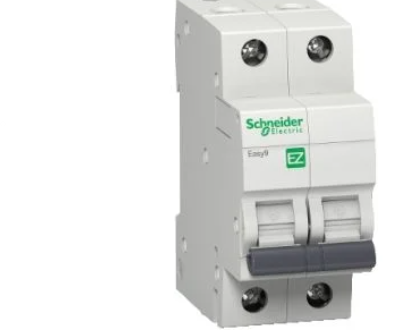Introduction
In the bustling world of commerce, where every second counts and every detail matters, the significance of commercial fridges cannot be overstated. These refrigeration units are the unsung heroes of countless businesses, silently ensuring the freshness and safety of perishable goods while seamlessly integrating into the workflow. In this comprehensive guide, we delve into the world of commercial fridges, exploring their types, functionalities, maintenance, and much more.
Meta Description:
Discover everything you need to know about commercial fridges, from their types and features to maintenance tips and cost-effective solutions.
Types and Categories
Walk-In Refrigerators
Walk-in refrigerators offer vast storage capacity, making them ideal for restaurants, grocery stores, and food warehouses. These spacious units can accommodate large quantities of perishable items while providing easy access for staff.
Reach-In Refrigerators
Compact yet efficient, reach-in refrigerators are commonly found in commercial kitchens and retail environments. With adjustable shelves and ergonomic designs, they offer convenient storage solutions for a variety of products.
Display Fridges
Display fridges are designed to showcase products in an enticing manner, making them popular choices for supermarkets, delis, and convenience stores. These units often feature glass doors or open fronts to attract customers while maintaining optimal temperature levels.
Undercounter Fridges
Undercounter fridges are space-saving marvels, fitting seamlessly beneath countertops or workstations. They are frequently used in bars, cafes, and small eateries where space is at a premium.
Symptoms and Signs
Inconsistent Temperature
One of the telltale signs of a malfunctioning commercial fridge is inconsistent temperature levels. Fluctuations in temperature can compromise the quality and safety of stored goods, leading to potential spoilage and financial losses.
Excessive Frost Build-Up
Excessive frost build-up inside the fridge indicates a problem with the defrost system. This issue not only reduces storage capacity but also affects the overall efficiency of the unit.
Unusual Noises
Strange noises emanating from the fridge, such as buzzing or rattling sounds, may signify mechanical issues or faulty components. Prompt attention to these noises can prevent more significant problems down the line.
Causes and Risk Factors
Poor Maintenance
Neglecting regular maintenance tasks, such as cleaning condenser coils and checking door seals, can significantly impact the performance of commercial fridges. Accumulated dirt and debris can restrict airflow and cause the unit to work harder, leading to increased energy consumption and potential breakdowns.
Overloading
Overloading a commercial fridge beyond its recommended capacity can strain the compressor and other components, resulting in decreased efficiency and premature wear and tear. It’s essential to adhere to load limits and distribute items evenly to maintain optimal performance.
Power Outages
Power outages pose a significant risk to perishable goods stored in commercial fridges, especially if the outage lasts for an extended period. Implementing backup power solutions, such as generators or battery-operated alarms, can help mitigate potential losses.
Diagnosis and Tests
Temperature Monitoring
Regular temperature monitoring is essential for ensuring the proper functioning of commercial fridges. Using digital thermometers and data loggers, businesses can track temperature fluctuations and identify potential issues before they escalate.
Refrigerant Leak Detection
Refrigerant leaks can compromise the cooling capacity of commercial fridges and pose environmental hazards. Conducting regular inspections and leak tests can help detect and address leaks promptly, minimizing downtime and repair costs.
Compressor Performance
The compressor is the heart of a commercial fridge, responsible for circulating refrigerant and maintaining consistent temperature levels. Regular checks of compressor performance, including suction and discharge pressures, can help identify early signs of malfunction.
Treatment Options
Professional Repairs
In the event of a malfunction or breakdown, seeking professional repairs from certified technicians is paramount. Attempting DIY repairs or relying on unqualified individuals can exacerbate the problem and void warranties.
Component Replacement
Replacing faulty components, such as compressors, condenser fans, or temperature sensors, may be necessary to restore the functionality of a commercial fridge. It’s essential to use genuine parts and follow manufacturer guidelines to ensure compatibility and performance.
Routine Maintenance
Preventive maintenance is the key to prolonging the lifespan of commercial fridges and minimizing costly repairs. Regular tasks, such as cleaning, defrosting, and lubricating moving parts, should be performed according to a predetermined schedule.
Preventive Measures
Establish Maintenance Protocols
Implementing comprehensive maintenance protocols, including cleaning schedules, temperature monitoring routines, and equipment inspections, can help prevent issues before they arise. Designating responsible personnel and keeping detailed records can streamline maintenance efforts and ensure compliance.
Train Staff
Properly trained staff play a crucial role in maintaining the integrity of commercial fridges and identifying potential problems early on. Providing comprehensive training on fridge operation, maintenance procedures, and safety protocols can empower employees to contribute to a safe and efficient working environment.
Invest in Quality Equipment
Choosing high-quality commercial fridges from reputable manufacturers is a sound investment for businesses seeking reliability and longevity. While upfront costs may be higher, the long-term benefits, including energy savings and reduced maintenance expenses, outweigh the initial investment.
Personal Stories or Case Studies
Sarah’s Bakery: A Case Study in Refrigeration Excellence
Sarah, the owner of a bustling bakery in the heart of the city, understands the critical role that commercial fridges play in her business. By implementing stringent maintenance protocols and investing in top-of-the-line refrigeration equipment, Sarah ensures that her delectable creations remain fresh and irresistible to customers.
Expert Insights
Dr. Emily Thompson, Refrigeration Specialist
“Commercial fridges are indispensable assets for businesses that rely on the storage and preservation of perishable goods. Regular maintenance and prompt repairs are essential for ensuring optimal performance and minimizing downtime. Investing in quality equipment and training staff adequately can yield significant long-term benefits.”
Conclusion
In conclusion, commercial fridges are essential components of modern businesses, providing reliable storage solutions for perishable goods. By understanding the different types, symptoms of malfunction, causes, diagnostic procedures, treatment options, and preventive measures, businesses can optimize the performance and longevity of their refrigeration systems. Remember, proactive maintenance and investment in quality equipment are key to ensuring uninterrupted operations and safeguarding valuable inventory





